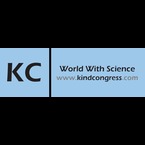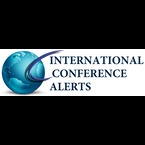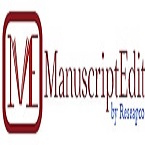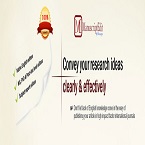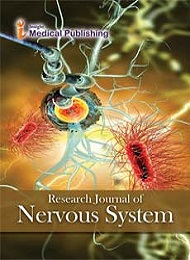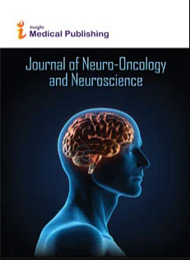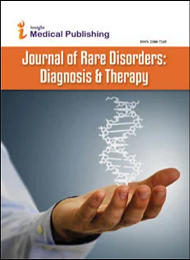Theme: Venue: Hyatt Place London Heathrow Airport
Neurological Disorders 2023
- About Us
- Special Sessions
- Scientific Sessions
- Market Analysis
- Young Research Award
- Visa Application Documents
- PARTICIPATION OPTIONS
- Past Conferences
Publish your article and get free conference passes for 749 Euro LIMITED OFFER!!
We are pleased to announce our upcoming 29th Annual Summit on Neuroscience & Neurological Disorders is scheduled during July 17-18, 2023 in London, UK. It is our privilege to solicit each one of you to our meritorious Neurological Disorder 2023 of all the dignitaries worldwide over there. The main theme for the Neurological Disorder 2023 (ASNND23) is “Latest Techniques and Strategies in Neuroscience and Neurological Disorder”
Neurological Disorder 2023 unequivocally respects all of the individuals over the globe from driving colleges, research foundations, expressive associations, and all interested to allocate their assessment experiences in the 29th Annual Summit on Neuroscience and Neurological Disorder conference on July 17-18, 2023 in London, UK. This year conference theme "Latest Techniques and Strategies in Neuroscience and Neurological Disorder".
Neurological Disorder 2023 will be running with International experts from the field of Neurology and Neuroscience, International symposiums, B2B meetings, workshops will be organized involved in the discussion of the specific topics in the field of Neurology like Neuro Muscular Disorders, Brain mapping, Clinical Neurophysiology, Neuro Infectious Diseases, Neurosurgery, Neuropharmacology, Neuropathology, Pediatric Neurology, Neuro-oncology, Brain Tumor, Neuroanatomy, Neuroendocrinology, Cognitive Research, Brain Disorders, Brain stimulation etc.
Neurological Disorder 2023 will have Oral Session, Keynote Session, Poster Presentation, e-Poster Presentation, Exhibition, Video Presentation, Virtual Talk @ASNND23, Q & A Session, Expert live Session, Special Sessions (Visual Mode and Paper Mode).
There are in excess of 600 sorts of Neurological Disorders, for example, Epilepsy, Alzheimer's infection, Parkinson's sickness, stroke, cerebrum tumors etc. A gauge of 6.8 million individuals bites the dust each year as a reason for Neurological Disorder.
The Conference Highlights are:
· Neurology
· Alzheimer’s diseases
· Neuro Radiology
· Neuropsychology and Neurorehabilitation
· Pediatric Neurology
· Neuro-ophthalmology
· Neurodegenerative diseases
· Clinical Neurophysiology or Physiology
· Neuropharmacology
· Neurogenetics
· Neural Engineering
· Neuroimaging
· Neurosurgery
· Neuropsychiatry
· Neuro-Oncology
· Computational Neurology
· Metastasis
· Neuroplasticity
· Autonomic Neurology
· Behavioral Neurology
· Brain Tumor and Brain Injury
· Cognitive Neurology
· Geriatric Neurology
Special sessions will be providing the opportunity to focus in detail on particular emerging topics related to neuroscience and neurology, which are not reflected in the list of conference tracks or represent specific working fields.
Abstract / Poster Submission Guideline for special Session at ASNND2023
Special session organizers and participants may submit those individual papers via the abstract submission portal Link.
(Note: In the abstract submission form, authors are requested to select the track as other for the special issue presentation.)
The paper deadline is July, 2022 (Friday). A €249 submission fee must accompany the submission of each paper for the special session. This fee will act as a registration deposit that can be applied to discount a conference registration/ pre-conference registration. An author can apply maximum two registration deposits to their conference registration.
Paper Selection Criteria
The papers will be reviewed for both content, considering significance, originality and robustness of the material presented, and clarity of concepts and organization. Papers are expected to be free from commercialism.
Special Session Topics @ASNND23
NeuroPsychology and Mental Health (30-45 min)
Brain Health and COVID-19 (30-45 min)
Gene Therapy in Neurology (30-45 min)
Space Neuroscience (30-45 min)
Neuro Psychotherapy (30-45min)
ADHD (30-45min)
For any queries, please feel free contact us.
Email Address: neurologicaldisorders@meetingsnexpo.com
Track 01: Neurology
Neurology is that the branch of medication that deals with disorders of the system, that embody the brain, blood vessels, muscles, and nerves. most areas of neurology are the involuntary, central, and peripheral nervous systems.
· Peripheral nervous system
· General neurology
· Cerebrovascular disease
Track 02: Autonomic Neurology
Autonomic Neurology goes beneath a region of Neurology managing the investigation of automatic activities of the body and also the system nervous. involuntary Neurology incorporates treatment of neurons that impacts heartbeat, broadening or narrowing of veins, Swallowing, and so on. The dynamic degeneration of the involuntary system nervous cell results indifferent styles of disorders.
Symptoms of involuntary dysfunction
· Dizziness and fainting upon standing up, or hypotension.
· An inability to change pulse rate with exercise, or exercise intolerance.
· Sweating abnormalities, that might alternate between sweating an excessive amount of and not sweating enough.
Track 03: Behavioural Neurology
Behavioural Neurology goes below an area of Neurology managing the study of analysis, treatment, and also the board of patients tormented by altered behaviour as a result of a mind issue. A little of the clutters happen on account of mind damage or mental injury. This issue will modify recognition power and thinking capability.
Track 04: Neurological Disorders
The major reason for Neurological Disorders is that the progressive loss of structure and performance of Neurons. It also can cause the death of Neurons. medicine Disorders could cause diseases like Parkinson’s, ALS, Huntington’s, etc. several items of analysis square measure occurring however these diseases square measure incurable. It advances to degeneration or death of Nerve cells. This deterioration causes psychological feature behaviour and different clinical options.
Neurologic Disorders:
· Poor or weaker judgment
· Personality changes; changing into irritable, fearful, suspicious, inappropriate
· Sudden weakness, symptom or vision loss
· Tremor, shakiness
· Difficulty walking as a result of shuffling steps or poor balance
· Loss of awareness or convulsions, etc.
Track 05: Clinical Neurophysiology or Physiology
Neurophysiology may be a branch of Science wherever the brain operate is studied studied bio electrical activity, it's going to be spontaneous or stimulated. It covers the pathophysiology and clinical strategies to diagnose diseases in CNS and PNS. The branch helps us to diagnose the intensity of brain harm exactly.
· Electromyography
· Evoked potentials
· Intraoperative monitoring
Track 06: Cognitive Neurology
Cognitive Neurology is that the study of neurobiology, psychological science and a vicinity of psychological medicine. All the branches overlap in psychological feature Neurology. Its study focuses on neural substrates of mental processes and their activity manifestations.
Track 07: Geriatric Neurology
It is a branch of Neurology that deals with the identification, medication, and treatment of medical specialty conditions prevailing because of the impact of aged condition. It additionally covers specialization observance of the aging central nervous system and its vulnerable effects because of bound medical specialty disorders. This Neurology study additionally includes insanity, Alzheimer's, Parkinson's disease, and gait disorders and therefore the effects of medication within the nervous system.
Track 08: Neuropharmacology
Neuropharmacology is the examination of how drugs influence cellular functioning the nervous system and the neural system through which they influence behaviour. There are two branches of neuropharmacology behavioural and molecular. Behavioural mainly focuses on the study of how drugs that affects human behaviour including the study of how drugs dependence and addition affect the human brain. Molecular neuropharmacology involves the study of neurons and their neurochemical communication with the overall goal of developing drugs that have beneficial effects on Neurological function.
· Anti-anxiety drugs
· Recent development drugs
· Neuroimmuno pharmacology
· Neuro chemical interaction
· Latest advancement in neuropharmacologcal therapy
· Genome wide association studies
Track 09: Neurogenetics
Neurogenetics is that the branch of science which mixes Genetics and Neurology. It's the study of the event and performance of the Nervous system furthermore because the role compete by genes in its development. A large range of disorders and diseases may be determined by Neurogenetics. It studies the role of genetics in the development and function of the nervous system. It considers neural characteristics as phenotypes and is mainly based on the observation that the nervous systems of individuals, even of those belonging to the same species, may not be identical.
Track 10: Neural Engineering
Neural Engineering is used to understand repair, replace, enhance or otherwise exploit the properties of Neural System by using various medical specialty engineering or bio-engineering techniques. Neural engineers are able to solve design issues at the interface of living tissue or non living structure. They use various electromagnetic techniques such as MRI scanning to examine and learn about brain activity.
Track 11: Neuroimaging
It may even be mentioned as Brain Imaging and is used for numerous techniques to either directly or indirectly image the structure, operate of the nervous system. It's a comparatively new discipline among neurobiology. Physicians who perform neuroimaging are referred to as neuroradiologists. Neuroimaging has two broad classes structural imaging and purposeful imaging.
· Anatomical Imaging
· Fusion Imaging
· Functional and Structural Neuroimaging
· Diffusion male person & Kurtosis imaging
· Single-Photon Emission computed axial imaging
Track 12: Neuro Immunology
It is the field which mixes neurobiology and immunology, that's the study of the nervous system and therefore the study of the immune system severally. Neuro immunologists higher perceive the interactions of those two complicated systems. The goal of Neuro immunology analysis is to develop our understanding of the pathology of sure Neurologic diseases with no clear etiology. Neuro immunology contributes to the event of recent pharmacologic treatments for many Neurologic conditions.
· Auto immune neuropathies
· Neuroimmuno genetics
· Neurovirology
· Neuroinflamation
Track 13: Neurosurgery and Spine
Neurosurgery refers to any surgery performed within the brain or the medulla spinalis. It is the medical speciality involved with the prevention, diagnosis, surgical operation, and rehabilitation of disorders that have an effect on any portion of the nervous system as well as the brain, neural structure, peripheral nerves, and vessel system. Neurosurgery is the discipline in medicine that focuses on the diagnosis and treatment of the central, peripheral, and autonomic nervous system. The specialty of neurosurgical care includes both adult and pediatric patients. Dependent upon the nature of the injury or disease a neurological surgeon may provide surgical and/or non-surgical care. Neurosurgeons provide the operative and non-operative management (i.e., prevention, diagnosis, evaluation, treatment, critical care and rehabilitation) of neurological disorders. Spine-related disorders are a prominent cause of global disability and are a burden on society and to public health.
· Vascular neurosurgery
· Pediatrics neurosurgery
· Neurological & Psychiatric Disorders
· Brain Injury & Brain Tumor
· Functional neurosurgery
· Spine Neurosurgery
· Skull base Neurosurgery
Track 14: Neuropsychiatry
Neuropsychiatry is that the branch of medication that considerations with mental disorders caused as a result of disorders within the nervous system. It includes both Neurology and psychiatry. It's conjointly closely associated with the field of Neuropsychology and behavioural neurology.
Track 15: Neuro-Oncology
Neuro-oncology is said to the study of cancers within the brain and medulla spinalis Cancers within the nervous system are usually serious and critical. In some cases, survival is extended using chemotherapy and radiation therapy. Neuro Oncology is a branch of medicine that concerns cancers of the brain, spinal cord & peripheral nerves. Neuro-Oncology manages a number of clinical trials, with a focus on common primary brain tumors including glioblastoma, medulloblastoma, anaplastic astrocytoma, low-grade astrocytoma, and reappearances of multiple kinds of gliomas. Neuro-oncologists are specialists who are involved in the treatment and management of primary, metastatic central and peripheral nervous system neoplasms, neurologic complications of cancer and other related disorders.
· Surgical Neuro-oncology
· Neurosurgical Oncology
· Tumor Biomarkers
· Brain Injury Rehabilitation
· Pathophysiology in Neuro Oncology
· Types of pain in Neuro Oncology
· Pediatric neuro-oncology
Track 16: Parkinsons Diseases
Parkinson's disease is characterised by the loss of cells of brain or funiculus, that over time results in dysfunction and incapacity that affects predominately dopamine-producing neurons in an exceedingly specific space wherever cells turn out dopamine. The symptoms of Parkinson’s diseases develop step by step. They usually begin with a small tremor in one hand and a sense of stiffness within the body.
Symptoms:
· Tremor or shaking
· Slowed movement
· Rigid muscles
· Speech changes
· Writing changes
Track 17: Computational Neurology
Computational Neurology is the study of the brain and its functions using information science structures that conjure the nervous system. It includes the utilization of laptop simulations and therefore theoretical models to review the functions of the brain and the system.
· Tumors
· Cauda equina syndrome
· Spina bifida
· Lumbar spinal stenosis
· Scoliosis
Track 18: Alzheimer’s diseases
Alzheimer’s aliment is a neural structure issue. Alzheimer’s illness is that the most generally recognized sort of insanity, a gathering of scatters the disables mental operating. Alzheimer’s is dynamic and irreversible. Cognitive state is one among the foremost prompt indications, aboard a progressive decay of different intellectual and thinking capacities, referred to as intellectual capacities, and changes in identity or conduct.
· Alzheimer’s disease
· Treatment of Alzheimer’s disease
· Stroke related dementia
· Computational and mathematical modeling of dementia
· White matter and dementia
· Sleep and dementia
· Young onset dementia
· Multi-infarct dementia
· Mixed dementia
· Post Stroke dementia
· Parkinson dementia
Track 19: Radiology
The field within radiology that specializes in the use of radioactive substances, x-rays and scanning devices for the diagnosis and treatment of diseases of the nervous system. Neuroradiology involves the clinical imaging, therapy, and basic science of the central and peripheral nervous system, including but not limited to the brain, spine, head and neck, interventional procedures, techniques in imaging and intervention, and related educational, socioeconomic, and medicolegal issues.
Track 20: Neuropsychology and Neurorehabilitation
Neuropsychology deals with both Neurology and Psychology. It is the study and characterization of the behavioural modifications that follow a neurological trauma or condition. Neurorehabilitation is a complex medical process helps in recovering from nervous system injury or minimize any functional alterations.
-
Cortical remapping
-
Clearly requiring controlled
-
Intensive stimulation of impaired brain networks
Track 21: Metastasis
Metastasis is a pathogenic specialist's spread from an underlying or essential site to an alternate or auxiliary site inside the host's body. The term is commonly utilized when alluding to metastasis by a Cancerous tumor. The spread of cancer cells from where they initially framed to another piece of the body. In metastasis, cancer cells split away from the first (essential) tumor, travel through the blood or lymph system, and structure another tumor in different organs or tissues of the body. The new, metastatic tumor is a similar sort of cancer growth as the essential tumor. Cancer happens after cells are hereditarily modified to multiply quickly and uncertainly. This uncontrolled multiplication by mitosis delivers an essential heterogeneic tumor. The cells which establish the tumor in the end go through metaplasia, trailed by dysplasia then anaplasia, bringing about a malignant phenotype. This malignancy allows for invasion into the dissemination, followed by intrusion to a second site for tumorigenesis.
· Transcoelomic.
· Lymphatic spread.
· Hematogenous spread.
· Canalicular spread.
Track 22: Pediatric Neurology
Pediatric neurology or child neurology refers to a specialized branch of medicine that deals with the diagnosis and management of neurological conditions in neonates (newborns), infants, children and adolescents. The discipline of child neurology encompasses diseases and disorders of the spinal cord, brain, peripheral nervous system, autonomic nervous system, muscles and blood vessels that affect individuals in these age groups. If a child has problems that involve the nervous system, a pediatric neurologist has the specialist training and knowledge to assess, diagnose and treat the child. The conditions dealt with by pediatric neurologists vary considerably, from relatively simple disorders such as migraine or cerebral palsy through to more complex and rare conditions such as metabolic disease or neurodegenerative disorders.
Track 23: Neuro-ophthalmology
Neuro-ophthalmology, a subspecialty of both neurology and ophthalmology, is the treatment of visual problems that are related to the nervous system that is, visual problems that do not come from the eyes themselves. We use almost half of the brain for vision-related activities. Neuro-ophthalmologists undergo specialized training and expertise in problems of the eye, brain, nerves and muscles. These physicians complete at least five years of clinical training after medical school and are usually board-certified in neurology, ophthalmology, or both. Neuro-ophthalmologists have unique abilities to evaluate patients from the neurologic, ophthalmologic, and medical standpoints to diagnose and treat a wide variety of problems.
Track 24: Stem Cells and Neuroregeneration
The nervous system is a complex network of nerves which coordinates its activities by the transmission of signals to and from different body regions. Neuroregeneration refers to the regrowth or repair of nervous tissues, cells or cell materials. Specifically, stem cell therapy represents a personalized, localized, and probably fruitful alternative in patient care, and is the subject of ongoing research. Central nervous system (CNS) diseases, such as cerebrovascular diseases, Alzheimer’s disease (AD), and Parkinson’s disease (PD), mainly involve the injury, degeneration, and loss of neural cells.
Some of the more common symptoms of neurodegenerative diseases include:
Memory loss
Forgetfulness
Apathy
Anxiety
Agitation
Track 25: Cellular-Neuroscience
Cellular neuroscience is a branch of neuroscience concerned with the study of neurons at a cellular level. Cellular neuroscience examines the various types of neurons, the functions of different neurons, the influence of neurons upon each other, and how neurons work together. This examines current progress on the understanding of central nervous system development and function based upon the exploitation of anatomical, genetic, molecular and advanced physiological techniques. The physiology and molecular biology of neurons is examined. We will pay particular attention to cellular, genetic and molecular mechanisms. Most if not all mechanisms that give rise to the nervous system are conserved in all animals, but they were often discovered using model organisms.
Track 26: Neuroplasticity
Neuroplasticity, also known as neural plasticity, or brain plasticity, is the ability of neural networks in the brain to change through growth and reorganization. These changes range from individual neuron pathways making new connections, to systematic adjustments like cortical remapping. Examples of neuroplasticity include circuit and network changes that result from learning a new ability, environmental influences, practice, and psychological stress. Two types of neuroplasticity are Structural neuroplasticity and Functional neuroplasticity.
Track 27: Brain Tumour and Brain Injury
A cancerous or non-cancerous mass or growth of abnormal cells in the brain. Tumours can start in the brain, or cancer elsewhere in the body can spread to the brain. Symptoms include new or increasingly strong headaches, blurred vision, loss of balance, confusion and seizures. In some cases, there may be no symptoms. Treatments include surgery, radiation and chemotherapy.
Brain dysfunction caused by an outside force, usually a violent blow to the head. Traumatic brain injury often occurs as a result of a severe sports injury or car accident. Immediate or delayed symptoms may include confusion, blurry vision and difficulty concentrating. Infants may cry persistently or be irritable. Treatment may involve rest, medication and surgery.
General symptoms include:
Headaches, which may be severe and worsen with activity or in the early morning
Seizures
Myoclonic
Single or multiple muscle twitches, jerks, spasms
Tonic-Clonic (Grand Mal)
Loss of consciousness and body tone
Loss of control of body functions, such as loss of bladder control
Sensory
Change in sensation, vision, smell, and/or hearing without losing consciousness
Complex partial
Personality or memory changes
Nausea or vomiting
Fatigue
Drowsiness
Sleep problems
Memory problems
Changes in ability to walk or perform daily activities
Track 28: Neurovascular Disorder
The common mode of expression of stroke could be a relatively sudden occurrence of a focal neurological deficit. Strokes are broadly categorized as ischemic or hemorrhagic. Ischemic stroke is due to the occlusion of a cerebral blood vessel and causes cerebral infarction. Knowledge of the stroke syndromes, the signs, and symptoms that correspond to the region of the brain that's supplied by each vessel, allows a degree of precision in determining the particular vessel that's occluded, and from the temporal evolution of the syndrome, the underlying explanation for vascular occlusion is often deduced. Cerebrovascular disease refers to a group of conditions, diseases, and disorders that affect the blood vessels and blood supply to the brain. Neurovascular disease can develop from a spread of causes, including atherosclerosis, where the arteries become narrow; thrombosis, or embolic blood clot, which may be a grume in an artery of the brain or cerebral phlebothrombosis which may be a blood clot during a vein of the brain.
-
Vascular Malformations
-
Carotid Artery Disease
-
Venous Sinus Thrombosis
-
Intracranial Vascular Disease
-
Carotid-cavernous Fistula
Track 29: Brain Mapping
Brain mapping is especially described to the have a look at of the anatomy and feature of the mind and spinal twine via the usage of imaging, immunohistochemistry, molecular and optogenetics, stem mobile and cell biology, engineering, neurophysiology and nanotechnology. Brain mapping strategies are continuously evolving, and rely upon the improvement and refinement of photo acquisition, representation, analysis, visualization and interpretation strategies. Functional and structural neuroimaging are on the middle of the mapping element of mind mapping.
Track 30: Spine Surgery
A spinal fusion surgery includes using a bone graft to stop the gesture at a painful vertebral segment, which in turn should decrease pain formed from the joint. Spine surgery arrangement (medical devices), bone graft measures, and a bone stimulator are sometimes used along with spinal fusion. Most pain in the lower back can be treated without surgery. In fact, surgery often does not relieve the pain; research suggests that 20 to 40 percent of back surgeries are not successful. This lack of success is so common that there is a medical term for it: failed back surgery syndrome
Types of Spine Surgery
Vertebroplasty and kyphoplasty
Spinal laminectomy/spinal decompression
Discectomy
Foraminotomy
Nucleoplasty
Spinal fusion
Artificial disk replacement
Track 31: Space Neuroscience
Space neuroscience is the scientific study of the central nervous system (CNS) functions during spaceflight. Living systems can integrate the inputs from the senses to navigate in their environment and to coordinate posture, locomotion, and eye movements. Gravity has a fundamental role in controlling these functions. In weightlessness during spaceflight, integrating the sensory inputs and coordinating motor responses is harder to do because gravity is no longer sensed during free-fall.
Importance and Scope:
International Conference on Neurology and medical specialty Disorders could be a distinctive platform that can collect international leaders within the field of neurobiology from around the world to London, UK. We will witness distinguished academicians within the field of neurobiology and neurology, public health professionals, Brain researchers, scientists, academic scientists, trade researchers, students to exchange concerning the state of the art analysis.
The aim of this conference is to come up with new concepts for higher treatment in an exceedingly convenient manner which will be helpful throughout the globe.
This conference can host workshops, symposiums, and different events which can facilitate to exchange of new analyses and ideas concerning neuroscience and its different branches.
Why Attend Neurology 2023?
International Conference on Neurology and Neurological Disorders may be a distinctive platform that aims to debate and generate new ideas for the treatment and management of Neurological Disorders. Neurology 2023 will witness an assembly of consultants from everywhere the globe who will present their cutting-edge research for the betterment of Neurologic health.
Other Reasons:
• Gathering of best researchers and budding talent from across the world.
• Showcase your analysis and find world recognition.
• Avail possibilities to move with world-renowned scientists.
• Perfectly designed schedule Workshop, Expo areas, brainstorming sessions, and lots of. Platform to network with fellow medical care clinicians.
• Academic workshops on diagnosis and treatment of neurological diseases.
Target Audience:
-
Neurosurgeons
-
Rehabilitation physicians
-
Neurologists
-
Brain Researchers
-
Brain injury survivors
-
Clinical practitioners
-
Physiotherapists
-
Clinical researchers
-
Nurses and all those provide care and treat the patients with neuro Disorders
Following are the statistics percentage-wise:
|
Physicians |
35% |
|
Researchers |
30% |
|
Academia |
30% |
|
Others |
5% |
Global Business & Research Value
As assessed by WHO around 6.8 million individuals bite the dust each year because of neurological issue. Fuelling development in the worldwide market for neurology implements is the expanding case of cerebral stroke and other intense issue, in particular epilepsy, Alzheimer's ailment, and Parkinson. Around 50 million individuals in the U.S. are harrowed by such scatters coming about high costs acquired in treatment as indicated by Transparency Market Research finds that it would achieve an estimation of US$13.6 billion of every 2019 by ascending at a great pace which was distributed with an on-going report for neurology promoting gadgets.
As indicated by another report by Grand View Research, Inc. the worldwide neuroscience advertises is anticipated to achieve USD 30.8 billion by 2020. Germany, U.K., France, Switzerland, Italy, and Spain are the main nations in Europe in the neurological issue drugs advertise. The event of neurological issue, for example, epilepsy , Parkinson's disease, Alzheimer's Diseases, different sclerosis, schizophrenia, horrendous cerebrum damage, spinal line damage, Cerebro-vascular sicknesses has expanded the interest for neurological medications in the market. The European medication showcase is relied upon to achieve US$32.0 billion before the finish of 2024 when contrasted with US$18.3 billion out of 2015.
Top Neurology Universities Worldwide:
USA Neurology Universities:
o Capella University, USA
o Columbia University, USA
o Harvard University, USA
o University of Pittsburgh, USA
o Baylor University, USA
o Boston University, USA
o Emory University, USA
o Johns Hopkins School of Medicine, USA
o University of North Carolina Chapel Hill, USA
o New York University, USA
o University of California Los Angeles, USA
o University of California San Diego, USA
o University of California San Francisco, USA
o University of Chicago, USA
o University of Pennsylvania, USA
o University of Southern California, USA
o Vanderbilt University, USA
o Washington University, USA
o Yale University, USA
o Duke University, USA
Europe Neurology Universities:
o Heidelberg University, Germany
o University in Pavia, Italy
o Public university in Barcelona, Spain
o University in Aachen, Germany
o Sapienza University of Rome, Italy
o Lubeck University, Germany
o Maastricht University, Netherlands
o Herdecke University, Germany
o VU University Amsterdam, Netherlands
o Magdeburg University, Germany
o Munster University, Germany
o Rovira i Virgili University, Spain
o Radboud University, Netherlands
o University of Gottingen, Germany
o Wurzburg University, Germany
o Tubingen University, Germany
o University in Skovde, Sweden
o University in Helsinki, Finland
o Freiburg University, Germany
o Aalto University, Finland
Asia Neurology Universities:
o National University of Singapore, Singapore
o Shanghai Jiao Tong University, China
o Kyoto University, Japan
o University of Hong Kong, China
o University of Delhi, India
o Peking University, China
o The Hong Kong University of Science and Technology, China
o Seoul National University, South Korea
o The Chinese University of Hong Kong, China
o National Taiwan University, Taiwan
o Tsinghua University, China
o Osaka University, Japan
o Fudan University, China
o Mahidol University, Taiwan
o Korea Advanced Institute of Science and Technology, South Korea
o Yonsei University, South Korea
o Nanyang Technological University, Singapore
Top Neurology Societies Worldwide:
USA Neurology Societies:
o Massachusetts Neurologic Association, USA
o Alzheimer Association, USA
o American Association of Neuro North, USA
o American Neuromodulation Society, USA
o American Association of Neurological Surgeons, USA
o American Association of Neuromuscular & Electrodiagnostic Medicine, USA
o American Board of Psychiatry and Neurology, USA
o American Epilepsy Society, USA
o American Headache Society, USA
o American Osteopathic Board of Neurology and Psychiatry, USA
o American Society of Neurorehabilitation, USA
o Epilepsy Association-Central, USA
o National Institute of Neurological Disorders and Stroke
o Neuropsychiatric Association, USA
o North American Neuro-Ophthalmology Society, USA
o Society for Behavioral and Cognitive Neurology, USA
o Society for Neuroscience, USA
o The American Society of Neuroimaging, USA
o American Academy of Neurology, USA
Europe Neurology Societies:
o Alzheimer Society of Finland, Finland
o Czech Alzheimer Society, Czech Republic
o Dutch Society of Neurology, Netherland
o Italian Society for Neuroscience, Italy
o Alzheimer Society of Ireland, Ireland
o European Federation of Neurological Societies, Turkey
o European Academy of Neurology, Austria
o Cyprus Neurological Society, Cyprus
o Czech Neurological Society, Czech Republic
o French Society of Neurology, France
o German Society of Neurology, Germany
o Italian Society of Neurology, Italy
o Portuguese Society of Neurology, Portugal
o World Federation of Neurology, United Kingdom
Asia Neurology Societies:
o Alzheimer's Disease Association, Singapore
o Indian Academy of Neurology, India
o The Japanese Society of Psychiatry and Neurology, Japan
o Neurological Society of India, India
o Indonesian Neurology Association, Indonesia
o Asian Society Against Dementia, Singapore
o Chinese Stroke Association, China
o Asian Australasian Society of Neurological Surgeons, Australia
o Japanese Society of Neurology, Japan
o Chinese Society for Neuroscience, China
o Chinese medical association, China
o Taiwan Movement Disorder Society, Taiwan
o Taiwan Neurological Society, Taiwan
Funding Bodies in Global Health:
o Chinese Academy of Sciences
o National Natural Sciences Foundation of China
o Council for Scientific and Industrial Research
o Japan Science and Technology Agency
o The Volkswagon Stifung Foundation
o Austrian Science Fund
o Vienna Science and Technology Fund
o National Fund for Scientific Research
o Hungary Scientific Research Fund
o Canadian Foundation for Innovation
o The Brain and Behavior Research Fund
o Neuroscience Research Grants
o Health Research Council of New Zealand
o Neurological Foundation New Zealand
o South African Medical Research Council
List of drugs manufactured for Brain diseases:
|
Acetazolamide |
Escitalopram |
Lorazepam |
|
Alprazolam |
Eszopiclone |
Midazolam |
|
Bromocriptine |
Fluphenazine |
Nortriptyline |
|
Buspirone |
Fluoxetine |
Nefazodone |
|
Chlorpromazine |
Gabapentin |
Oxazepam |
|
Codeine |
Gepirone |
Paroxetine |
|
Diazepam |
Hydroxyzine |
Reboxetine |
|
Doxapram |
Haloperidol |
Selegiline |
|
Flurazepam |
Isoflurane |
Tryptophan |
|
Desflurane |
Ketamine |
Ziprasidone |
Hospitals Associated with Neurology Worldwide:
-
Mayo Clinic, Rochester, Minnesota
-
Johns Hopkins Hospital, Baltimore, Maryland
-
Massachusetts General Hospital, Boston
-
New York-Presbyterian University Hospital of Columbia and Cornell, New York City
-
Heidelberg University Hospital
Prestigious Award for Young Research’s at Neurological Disorder 2023 – “Latest Techniques and Strategies in Neuroscience and Neurological Disorder”
Neurological Disorder 2023 Committee is glad to announce “29th Annual Summit on Neuroscience & Neurological Disorders” on July 17-18, 2023 in London, UK focusing on the theme: “Latest Techniques and Strategies in Neuroscience and Neurological Disorder” Neurological Disorder 2023 developments are maintaining their momentum. Neurology Conference program delves into strategic discussions.
Neurological Disorder 2023 Young Scientist Awards:
Neurological Disorder 2023 Committee is intended to honour prestigious award for talented Young researchers, scientists, Young Investigators, Post-Graduate students, Post-doctoral fellows, Trainees, Junior faculty in recognition of their outstanding contribution towards the conference theme. The Young Scientist Awards make every effort in providing a strong professional development opportunity for early career academicians by meeting experts to exchange and share their experiences on all aspects of Neurology.
Young Research’s Awards at Neurological Disorder 2023 for the Nomination: Young Researcher Forum - Outstanding Masters/Ph.D./Post Doctorate thesis work Presentation, only 25 presentations acceptable at Neurological Disorder 2023 young research forum.
Benefits
-
Young Scientist Award recongination certificate and memento to the winners.
-
Our conferences provide best Platform for your research through oral presentations.
-
Learn about career improvement with all the latest technologies by networking.
-
Young Scientists will get appropriate and timely information by this Forum.
-
Platform for collaboration among young researchers for better development.
-
Provide an opportunity for research interaction and established senior investigators across the globe in the field.
-
Share the ideas with both eminent researchers and mentors.
-
It’s a great privilege for young researchers to learn about the research areas for expanding their research knowledge.
Eligibility
-
Young Investigators, Post-Graduate students, Post-doctoral fellows, Trainees, Junior faculty with a minimum of 5 years of research experience
-
Presentation must be into scientific sessions of the conference.
-
Each Young Researcher / Young Scientist can submit only one paper (as first author or co-author).
-
Age limit-Under 35yrs
-
All submissions must be in English.
For conference attendance and participation, only Business Visa should be applied. Contact your nearest travel agent/visa information center/ London, UK Embassy for the correct application form.
All visas for visiting / London, UK shall be processed by respective authorities only upon submission of proper documents through the proper channels.
In case of non-furnishing of documents, non-adherence to guidelines visas shall be cancelled by respective authorities.
The minimum supportive documents that might be required while applying for / London, UK visa include:
Letter of invitation,
Abstract acceptance letter (if speaker),
Registration payment receipt,
Accommodation confirmation letter issued under conference letter head.
For a letter of invitation and accommodation confirmation, payment of registration fees and accommodation charges is a pre-requisite.
PARTICIPATION OPTIONS: Neurological Disorders 2023, provides the participants with different modes or ways to participate such as Delegate or Speaker under either ACADEMIC / STUDENT / BUSINESS Category.
1. Keynote speaker: 45-50 minutes
2. Speaker (oral presentation): 25-30 minutes (only one person can present)
3. Speaker (workshop): 45-50 minutes (more than 1 can present)
4. Speaker (special session): 45-50 minutes (more than 1 can present)
5. Speaker (symposium): more than 45 minutes (more than 1 can present)
6. Delegate(only registration): will have access to all the sessions with all the benefits of registration
7. Poster presenter: can present a poster and enjoy the benefits of delegate
8. Remote attendance: can participate via video presentation or e-poster presentation
9. Exhibitor: can exhibit his/her company’s products by booking exhibitor booths of different sizes
10. Media partner
11. Sponsor
12. Collaborator
For more details about each mode, kindly contact: neurologicaldisorders@meetingsnexpo.com
Neurodisorders Congress 2018
Conference Series llc LTD takes great honor in announcing the commencement of 25th World Congress on Neurology and Neuro disorders July 16-17, 2018 Melbourne, Australia. Neuro disorders Congress 2018 has received a benevolent response from all over the world. This has been conducted with the aim and the categorical intent of promoting the developments of new perceptions and ideas for exploring the high level of knowledge reached by the scientific community on Neuroscience and Neuro disorders. The extremely illustrious conference hosted by Conference Series llc LTD was marked with the attendance of young and brilliant researchers, clinicians, business delegates and talented student communities.
This annual conference brought together eminent scientists, Neurologist, Neuroscience researchers, health care professionals, University professors, Neuroscience professionals in which many issues in Neuroscience research were discussed in depth to provide up-to-date information to the world. On the other hand, the meeting provided an opportunity for an open and animated sharing of ideas and experiences.
The conference was organized around the theme of Exploring Novel Technologies in Neurology and Neurological Disorders. The event implanted a firm relation to upcoming strategies in the field of Neurology with the scientific community. The conceptual and applicable knowledge shared, will also foster organizational collaborations to nurture scientific accelerations.
The conference witnessed an amalgamation of peerless speakers, who enlightened the crowd with their enviable research knowledge and on various alluring topics related to the field of Neuroscience. The eminent personalities at the conference were Manjula Ricciardi, Northland District Health Board, New Zealand, Malcolm R Hooper, OXYMED, Australia, Adam Mate, Stroke Association, Australia, Galia Valentinova Anguelova, Leiden University Medical Centre, Netherlands, Javier Sánchez, Surgical Medical Research Centre, Cuba
Conference Series llc LTD offers its heartfelt appreciation to all the Organizing Committee Members, Chairs and Co-Chairs, Speakers, Students, Media Partners and Editorial Board Members of Journal of Neurological Disorders, Journal of Neurology & Neurophysiology and Journal of Neuroscience & Clinical Research who supported the conference in every aspect for the awe-inspiring exhibition at the venue.
We once again thank you all for the enormous exquisite response. This inspires us to continue organizing events and conferences for furthering the Neuroscience Research. Conference Series llc LTD therefore, is glad to announce its 26th World Congress on Neurology and Neuro disorders, May 15-16, 2019, Tokyo, Japan.
Mark your calendars for the upcoming meeting; we are hoping to see you soon!!!!
Neurology 2017
Conference series LLC takes great honor in announcing the commencement of 11th World Congress on Neurology and Therapeutics March 27-29, 2017 Madrid, Spain. Neurology-2017 has received a benevolent response from all over the world. This has been conducted with the aim and the categorical intent of promoting the developments of new perceptions and ideas for exploring the high level of knowledge reached by the scientific community on Neuroscience. The extremely illustrious conference hosted by Conference series LLC was marked with the attendance of young and brilliant researchers, clinicians, business delegates and talented student communities.
The conference was organized around the theme Scientific quest to enhance the fascinating and mystified Neurons. The event implanted a firm relation to upcoming strategies in the field of Neurology with the scientific community. The conceptual and applicable knowledge shared, will also foster organizational collaborations to nurture scientific accelerations.
This annual conference brought together eminent scientists, Neurologist, Neuroscience researchers, health care professionals, University professors, Neuroscience professionals in which many issues in Neuroscience research were discussed in depth to provide up-to-date information to the world. On the other hand, the meeting provided an opportunity for an open and animated sharing of ideas and experiences.
The conference witnessed an amalgamation of peerless speakers, who enlightened the crowd with their enviable research knowledge and on various alluring topics related to the field of Neuroscience. The eminent personalities at the conference were Harish C Pant, National Institutes of Health, USA, Evelyn M Garcia, Carilion Clinic, USA, Anthony E Kline, University of Pittsburgh, USA, David E Vance, the University of Alabama at Birmingham, USA, Vahe Poghosyan, King Fahad Medical City, Saudi Arabia
Conference series LLC offers its heartfelt appreciation to all the Organizing Committee Members, Chairs and Co-Chairs, Speakers, Students, Media Partners and Editorial Board Members of Journal of Neurology & Neurophysiology, Journal of Neuroinfectious Diseases and Journal of Neurological Disorders who supported the conference in every aspect for the awe-inspiring exhibition at the venue.
We once again thank you all for the enormous exquisite response. This inspires us to continue organizing events and conferences for furthering the Neuroscience Research. Conference series LLC, therefore, is glad to announce its 21st World Congress on Neurology and Therapeutics during March 15-17, 2018 London, UK
Mark your calendars for the upcoming meeting; we are hoping to see you soon!
Neurology 2016
Conference Highlights
- Spine Surgery
- Neurology
- Autonomic Neurology
- Behavioural Neurology
- Neurological Disorders
- Clinical Neurophysiology or Physiology
- Geriatric Neurology
- Neuropharmacology
- Neurogenetics
- Neural Engineering
- Neuroimaging
- Neuro Immunology
- Neurosurgery
- Neuropsychiatry
- Neuro-Oncology
- Computational Neurology
- Alzheimer’s diseases
- Radiology
- Neuropsychology and Neurorehabilitation
- Metastasis
- Pediatric Neurology
- Neuro-ophthalmology
- Neurodegenerative Diseases
- Cellular-Neuroscience
- Neuroplasticity
- Brain Tumour and Brain Injury
- Neurovascular Disorder
- Brain Mapping
- Cognitive Neurology
To share your views and research, please click here to register for the Conference.
To Collaborate Scientific Professionals around the World
| Conference Date | July 17-18, 2023 | ||
| Sponsors & Exhibitors |
|
||
| Speaker Opportunity Closed | Day 1 | ||
| Poster Opportunity Closed | Click Here to View | ||
Useful Links
Special Issues
All accepted abstracts will be published in respective Our International Journals.
- Journal of Neuro-Oncology and Neuroscience
- Research Journal of Nervous System
- Journal of Rare Disorders: Diagnosis & Therapy
Abstracts will be provided with Digital Object Identifier by











